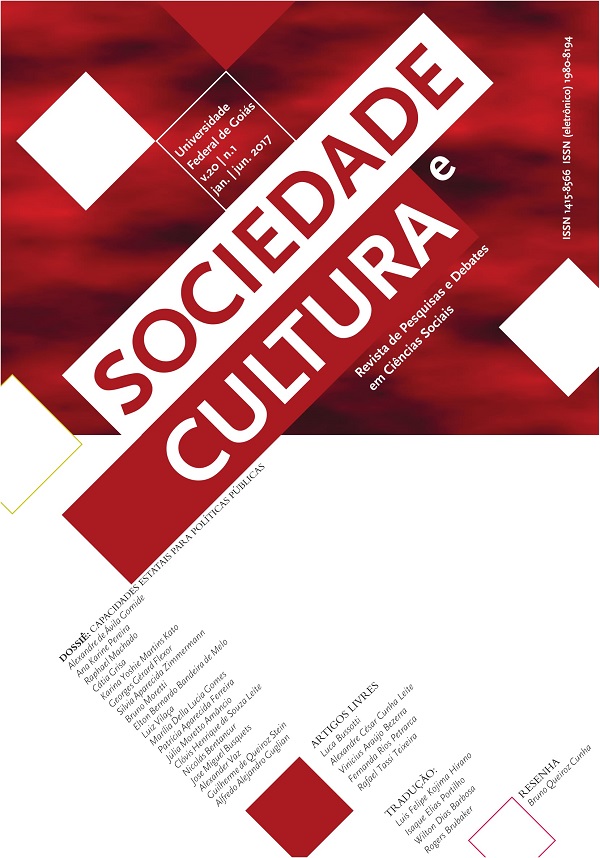Arranjo institucional, capacidades estatais e política industrial: os Conselhos de Competitividade do Plano Brasil Maior
DOI:
https://doi.org/10.5216/sec.v20i1.51057Abstract
Nesse artigo discute-se a relação entre capacidades estatais epolítica industrial a partir da perspectiva de análise de arranjos
institucionais de políticas públicas. Como objeto empírico,
analisa-se a experiência histórica da implementação de conselhos setoriais tripartites na política industrial brasileira e
o caso dos Conselhos de Competitividade do Plano Brasil
Maior. As conclusões apontam que os Conselhos de Competitividade reproduziram problemas encontrados nas experiências prévias e foram incapazes de gerar capacidades sufcientes
para coordenar os atores da maneira como sua função exigia.
Downloads
Download data is not yet available.
Downloads
Published
2017-12-27
How to Cite
DE QUEIROZ STEIN, Guilherme; ALEJANDRO GUGLIANO, Alfredo. Arranjo institucional, capacidades estatais e política industrial: os Conselhos de Competitividade do Plano Brasil Maior. Sociedade e Cultura, Goiânia, v. 20, n. 1, 2017. DOI: 10.5216/sec.v20i1.51057. Disponível em: https://revistas.ufg.br/fcs/article/view/51057. Acesso em: 20 dec. 2025.
Issue
Section
Thematic Dossier
License
Authors who publish in this journal agree to the following terms:
- Authors retain the copyright and grant the journal the right of first publication, the work being simultaneously licensed under the Creative Commons Attribution License, which allows the sharing of the work with acknowledgment of authorship and of the initial publication in this journal;
- Authors are authorized to enter into additional contracts separately, for non-exclusive distribution of the version of the work published in this journal (eg, publishing in an institutional repository or as a book chapter), with acknowledgment of authorship and of the initial publication in this journal;
- Authors are allowed and encouraged to post and distribute their work online (eg, in institutional repositories or on their personal page) at any point before or during the editorial process, as this can bring productive change as well as increases the impact and the citation of the published work (see O Efeito do Acesso Livre).



